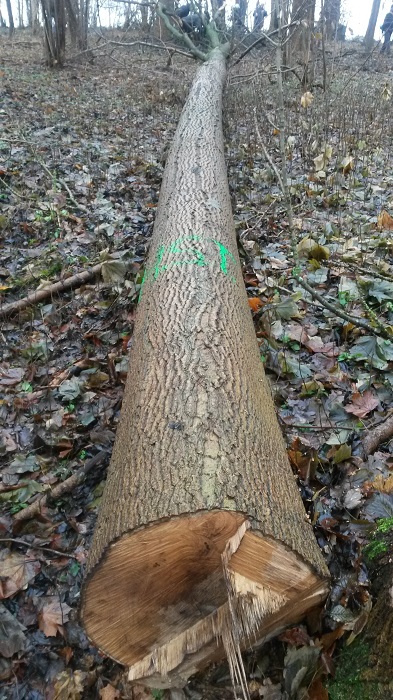Nest destruction

The felling of nesting trees is an all to common method of raptor persecution. This often happens during the breeding season with the eggs or young birds are present in the nest. Breeding birds of prey are also deliberately disturbed in order to prevent successful breeding. Even in winter, nests and roosting sites are repeatedly targeted so that the birds are unable to breed in the first place.
There has been increasing evidence in recent years that nests of protected large birds are intentionally removed where wind farm developments are planned. Species such as red kites and white-tailed eagles can especially prevent or disrupt the construction of wind turbines. It is difficult to prove that breeding sites of birds of prey are really deliberately destroyed in order to promote the construction of wind farms. Up to now, only a few cases in Germany have been proven to be beyond reasonable doubt. However, given so much money is involved in such development projects, it cannot be ruled out that beneficiaries of such plans will be often enticed to take such action than is actually known.
It should also be noted that not every felled nesting tree is a confirmed intentional incident of raptor persecution. Within the framework of the normal forestry and timber industry, poorly trained or inattentive workers can also accidentally cut down trees with nests. Proving whether intent was involved is often not easy. The removal of a single tree with an eyrie does indicate a targeted act, as does the felling of several eyrie trees in a confined space. It is also suspicious if someone takes the trouble to make the remaining tree stumps disappear as fast as possible.
If you have a suspicion, take pictures - especially of conspicuous details such as hidden tree stumps or the remains of the nest - and look for witnesses who knew the eyrie.
The nests of birds of prey are protected all year round by the Federal Nature Conservation Act. Felling of birds of prey nesting trees is therefore only possible outside the breeding season with a specially granted permit.






